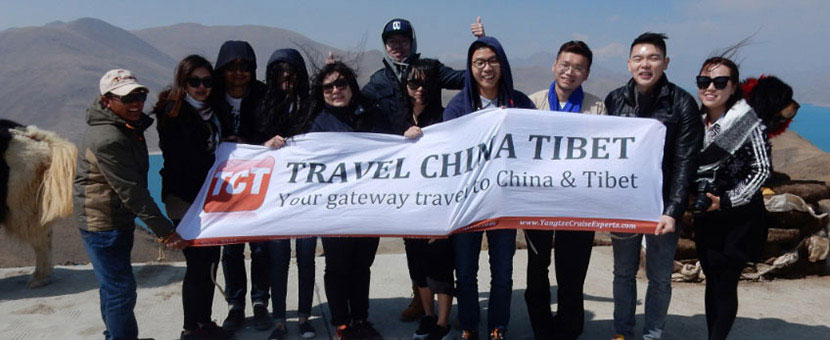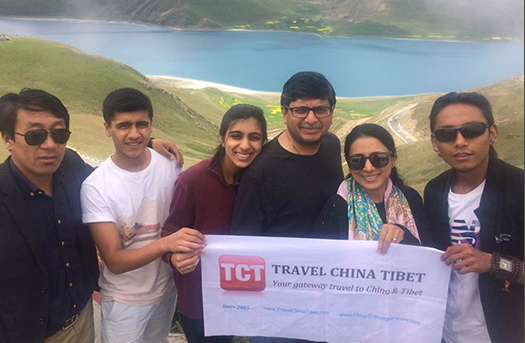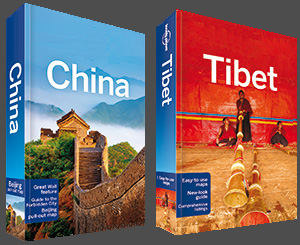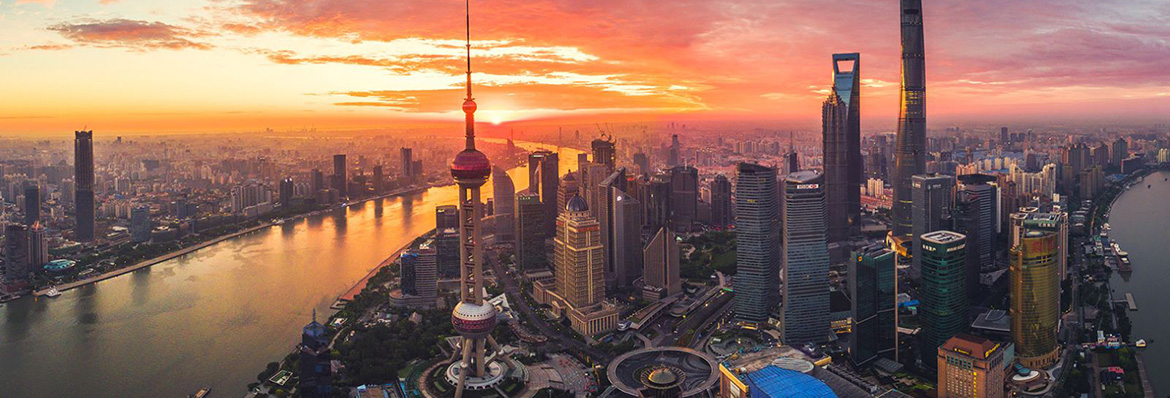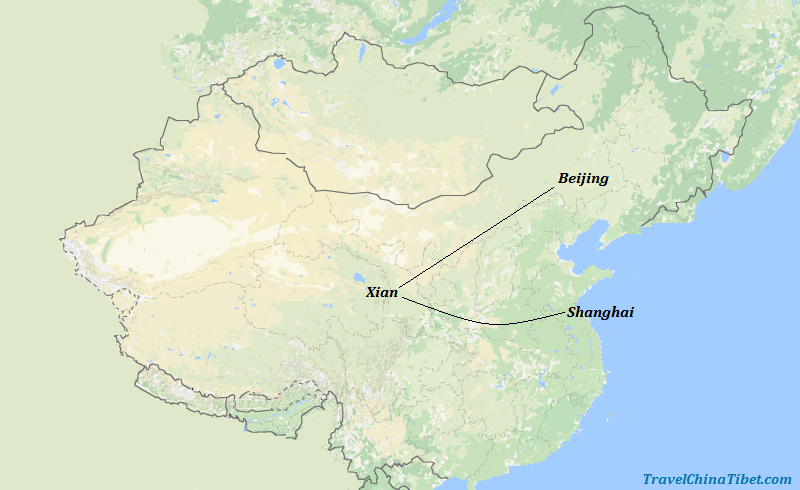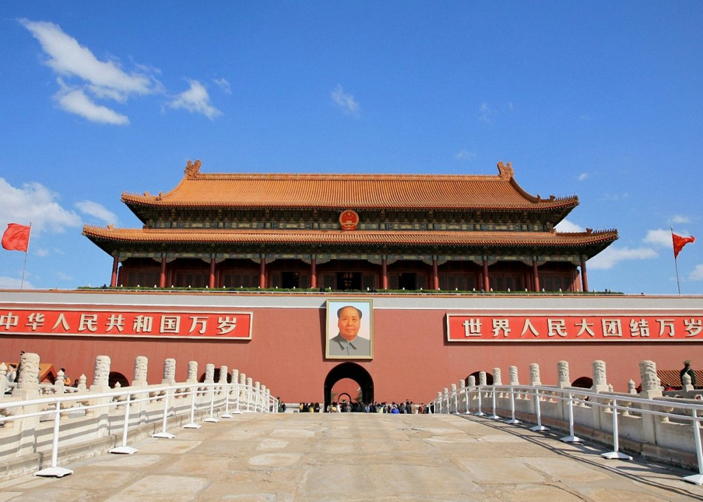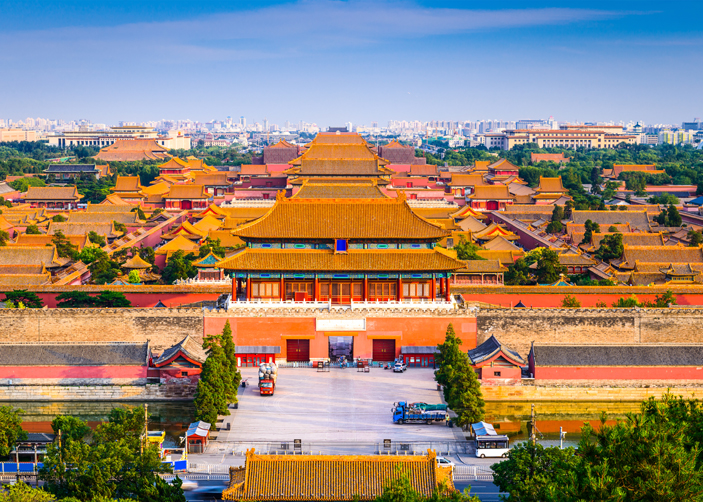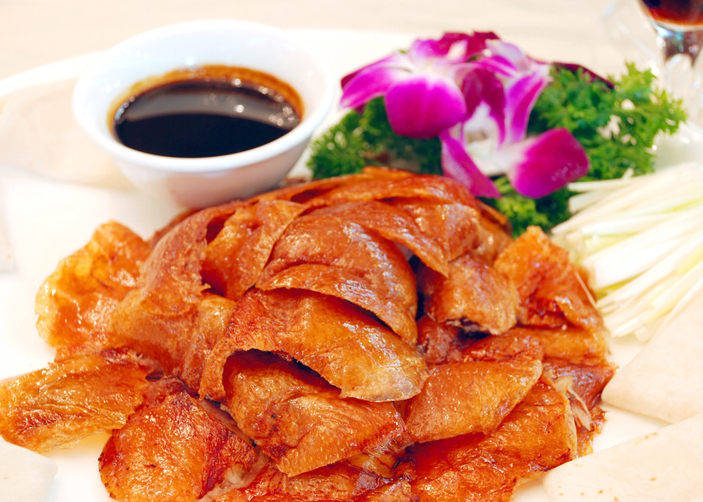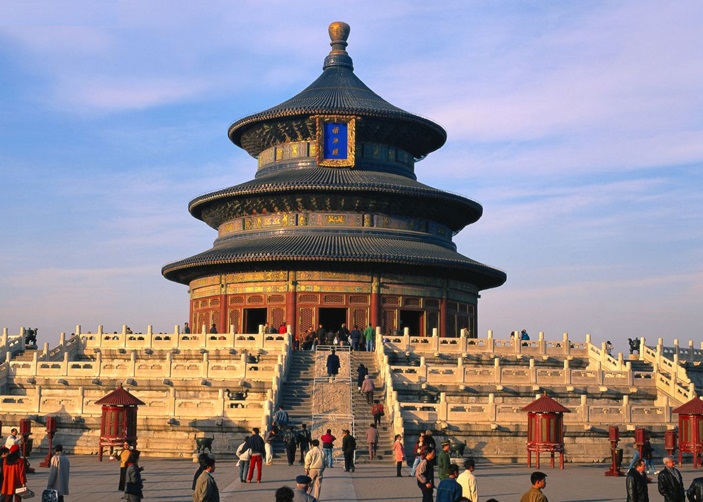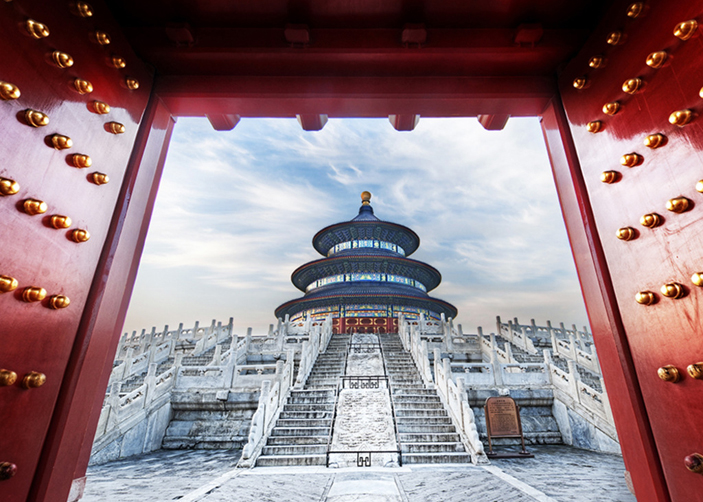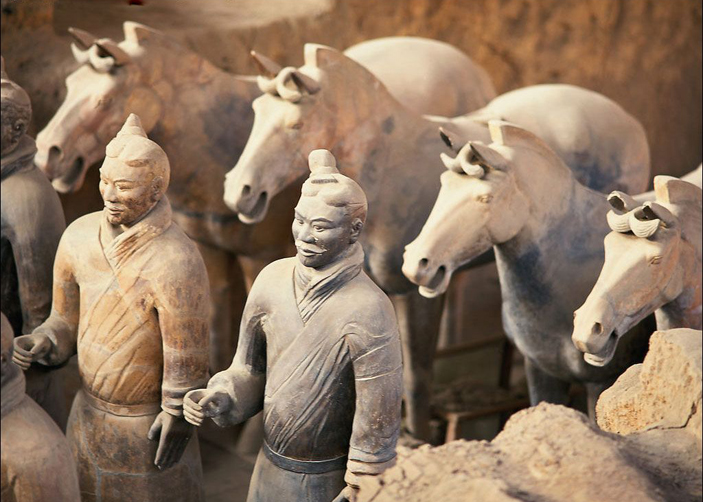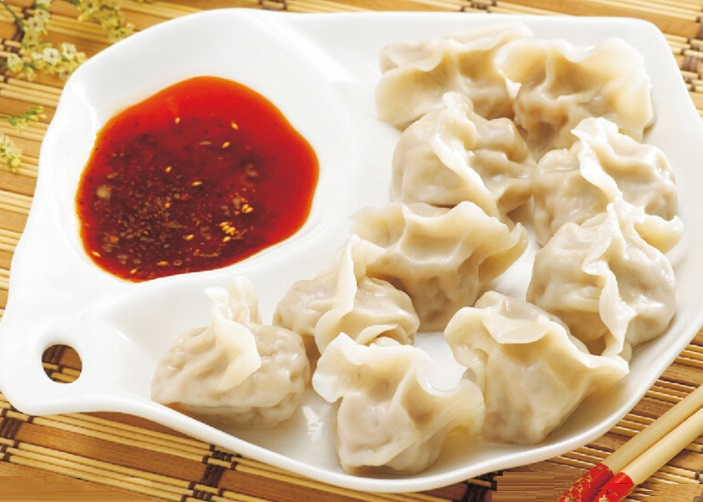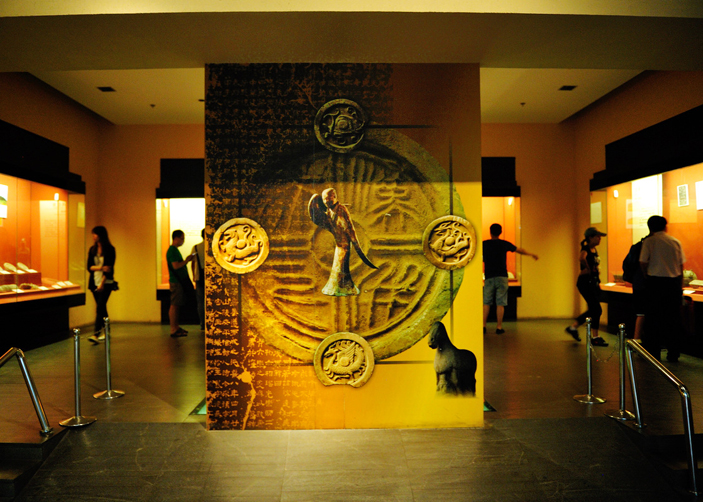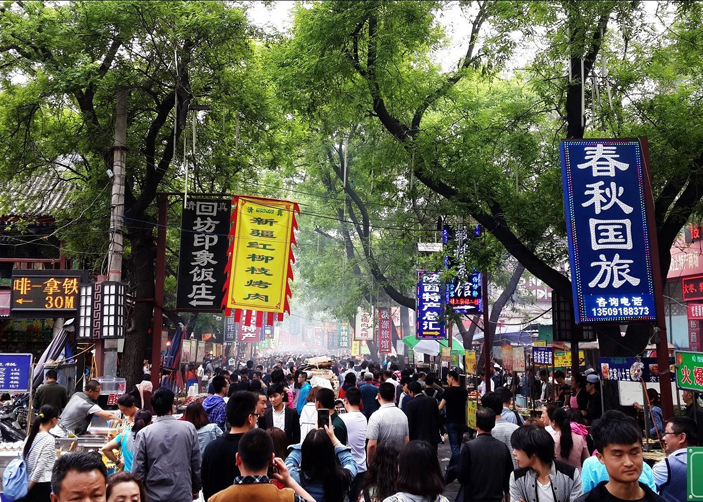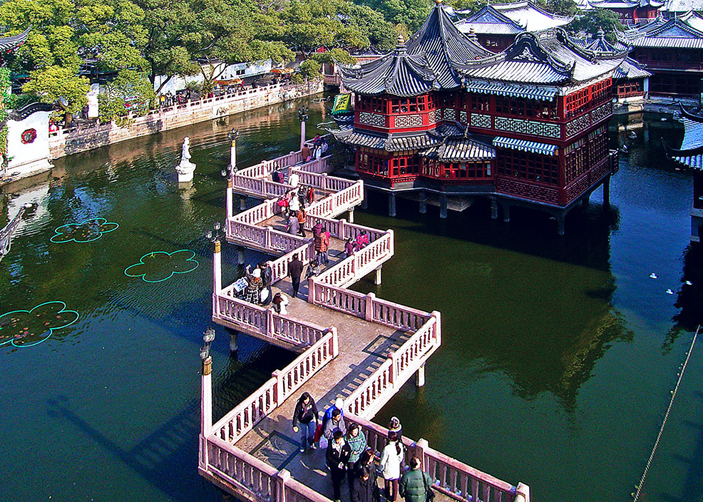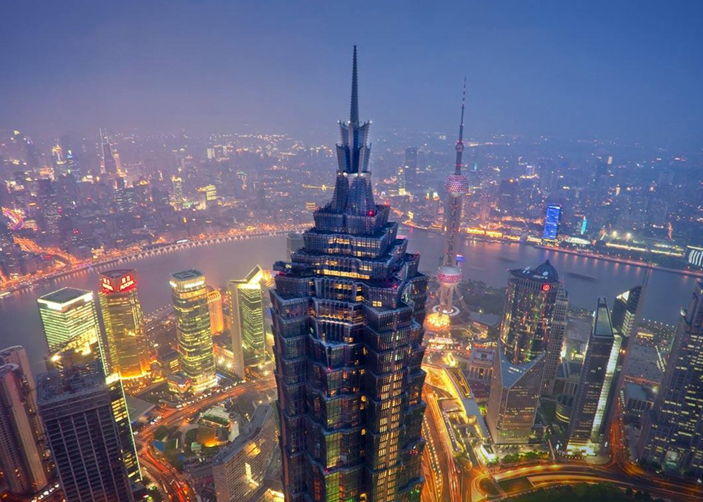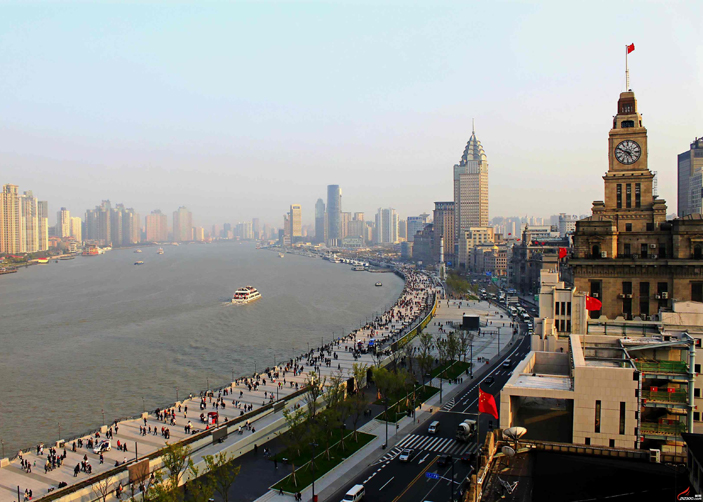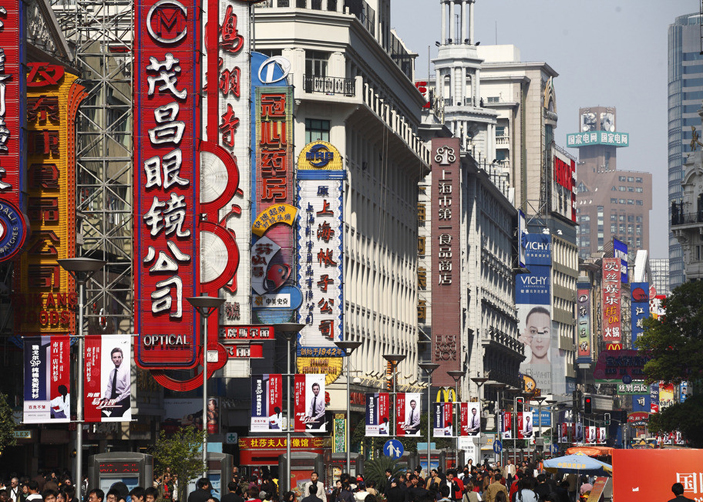Highlights: This morning tour will take you to size up the world-famous Great Wall (Mutianyu section which is less crowded, round-way cable car fee is INCLUDED), the key symbol of China. Flexible visiting time allows you to enjoy a lifetime trekking trip (1-2 hours' hiking). On the way to the Great Wall, you may have a distant view of the Olympic sites--Brid's Nest and Water Cube. Afterwards is a visit to the Changling Tomb and Sacred Road. In the evening, try the flavorful dish of Peking Roast Duck Dinner.
Great Wall of Mutianyu section: In the northern part of Huairou County some 70 kilometers north-east of Beijing City, the Mutianyu (Mu Tian Yu) section of the Great Wall stretches its way for over 2 kilometers. This section is well preserved and is a good alternative for visitors who would like to avoid crowds along the highly popular Badaling (Ba Da Ling) section during holiday and peak seasons.
Bird's Nest: Which is also known as the National Stadium, due to its iconic design was the key competition venue of the Beijing 2008 Olympic Games and the 13th Paralympic Games. The opening and closing ceremonies of the two Games have taken place here, together with the football, and track and field competitions. The stadium is the world's largest steel structure
Water Cube: which is also called the National Aquatics Centre, is one of the dramatic and amazing venues to host Beijing Olympics in 2008. This is the first building of its kind in China and it is also an economical and water-saving creation. The structural design is based on the natural formation of soap bubbles which give a random, organic appearance and helping to link the structure to its aquatic function.The swimming pool is deeper than most Olympic swimming pools, allowing swimming at faster speeds, while the gutters to the side of the pool disperse wave energy. A consequence of this was the breaking of 25 world records during the 2008 Olympics.
Sacred Road: Affiliated with the Ming Tombs, the Sacred Road was originally built to lead to the Changling mausoleum. It was considered to be the road leading to heaven. Chinese emperors were known as the Son of Heaven. During their reign they often passed through the sacred road to the sacrificial altar in order to converse with heaven. After their death, the funeral procession also took the path through the Sacred Road as a symbol of the passed emperor 's journey to heaven in the afterlife.
Changling Tomb: Fifty kilometers northwest from Beijing City lies the Ming Tombs – the general name given to the mausoleums of 13 emperors of the Ming Dynasty (1368 – 1644). The mausoleums have been perfectly preserved, as has the necropolis of each of the many emperors. Because of its long history, palatial and integrated architecture, the site has a high cultural and historic value. The layout and arrangement of all thirteen mausoleums are very similar but vary in size as well as in the complexity of their structures.
Peking Duck Dinner: Peking Duck or Beijing Roast Duck is regarded as one of the most delicious dishes throughout the world; It is a must for most visitors coming to Beijing to have a bite.
